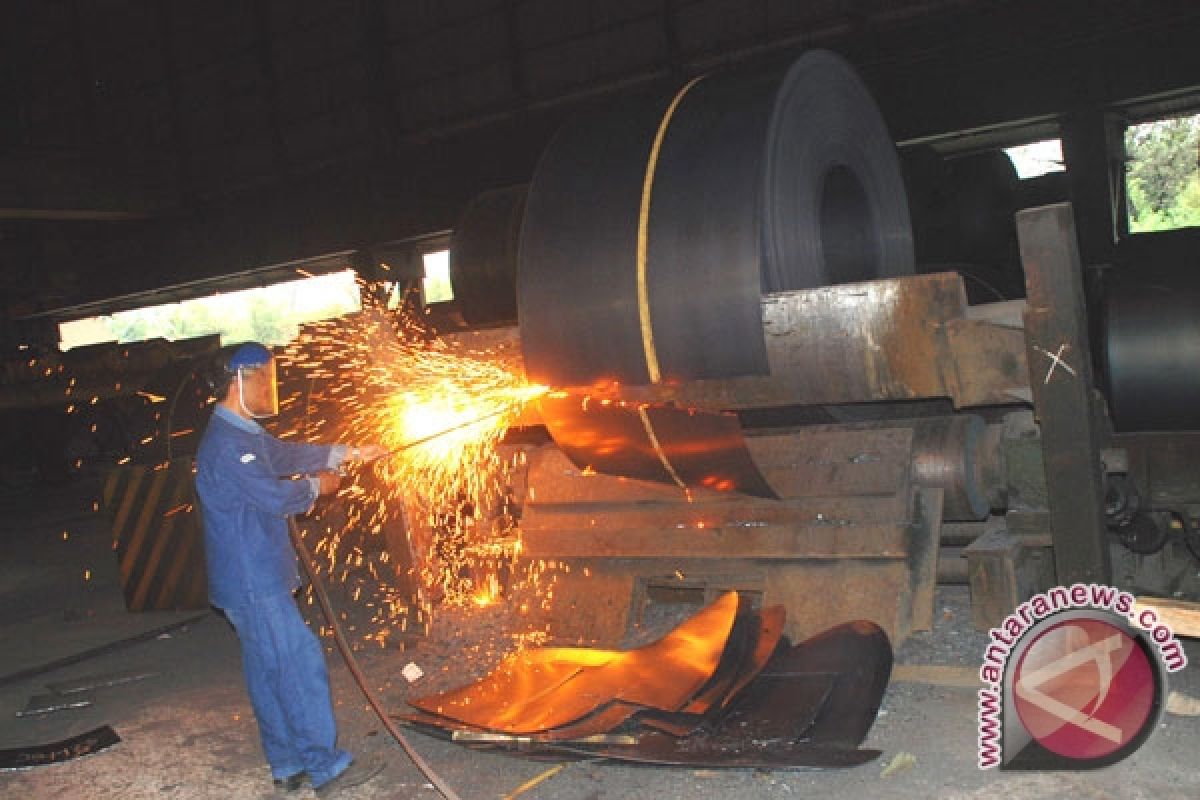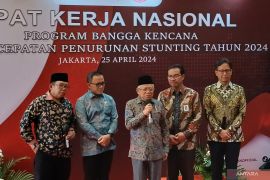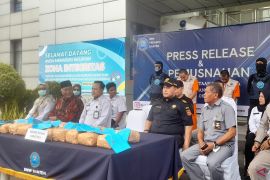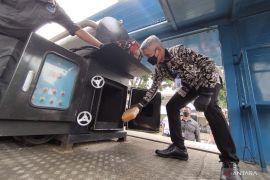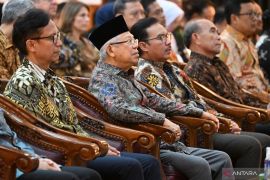Ryan Kiryanto, Bank BNI`s chief economist, said in a seminar on national steel industry in Jakarta, on Tuesday, Indonesia is among the relatively big consumers and producers of steel, yet the national steel production has never been in equilibrium with the domestic consumption needs.
The seminar, organized jointly by ANTARA News Agency and national steel-maker PT Krakatau Steel, highlighted a keynote by Deputy Defense Minister Sjafrie Sjamsoeddin and ANTARA President Director Akhmad Mukhlis Yusuf.
Also speaking in the seminar, Krakatau Steel President Director Fazwar Bujang and Universitas Indonesia`s military analyst Connie Rahakundinie Bakrie.
Citing the data of the Indonesian Association of Iron and Steel Industries (IISIA), Kiryanto added that in 2011 Indonesia still must import steel up to 3.0 tons to satisfy the high needs for steel domestically.
For domestic needs, steel consumption in the construction and manufacturing sectors this year is estimated to sharply increase in accordance with an economic growth predicted to be 6.4 percent.
The industrial sector is anticipated to grow 7.3 percent, as compared to 6.8 percent last year, whereas the manufacturing sector is set to grow 6.2 percent as the realization in 2010 came only to 5.0 percent.
On the other hand, the Indonesian steel market as a whole is prognosticated to value Rp63.7 trillions or an equivalent of 9.5 million tons of steel. This figure is an increase of 53.4 percent compared to Rp41.5 trillion achieved in 2010.
Meanwhile, the Ministry of Industry has mentioned that the market value of steel in Indonesia in 2011 could reach 9.5 million tons, or rising 44 percent compared to 2010 which was 6.6 million tons, with an average price for steel would increase 15-23 percent in 2011 against 2010.
According to Kiryanto, Bank BNI`s chief economist, the national steel industry may rely on the supports of the banking sector and stock market for investment financing, adjusted with the real needs of the industry`s actors.
In line with the principles of character, condition of economy, capacity, capital and collateral (the five C`s) in the practice of credit provision, thus there is a still wide room for the national banking in the financing of the national steel industry.
Based on Bank Business Plan (RBB) for 2011, he says, credit growth is projected to be 23-24 percent, or an equivalent of Rp423 trillions of new credits. Still based on 2011 RBB, there will be 14 leading banks committed to disbursing new credits of Rp288 trillions.
Ryan envisages that credit growth up to April 2011 would reach 23.8 percent, but by the year-to-date performance it would be low (under 5.0 percent), and this indicates that there is still a wide room for expansion.
It is predicted that in the second semester (the 3rd and 4th quarters) the banking sector would channel their credits aggressively in order to obtain the growth target as set before.
This opportunity for capital assistance from the national banking sector needs to be well taken advantage of by the national steel industry, particularly by PT Krakatau Steel, one of the national prided state-owned enterprises, he said.
The ever progressing national steel industry would ever strengthen the domestic economic resilience because steel industry has a close linkage with the infrastructure and strategic industries internally.
In addition, there is also an ever prospective level of demand for steel in the follow-up to the government`s commitment to implement the Master Plan for an Accelerated and Expansion of Indonesian Economic Development (MP3EI) through the six Economic Corridors (the corridors of Sumatra, Java, Kalimantan, Sulawesi, Bali and Papua-Maluku), where infrastructure sector is one of the mainstay sectors with a special attention given on it.
However, on the other hand, the government needs also to provide the concrete supports through policies and incentives to the national steel industry because this industry is of capital- and labor-intensive nature so that it is one of strategic industries from the economic perspective.
(T.EU/HAJM/S012)
Editor: Priyambodo RH
Copyright © ANTARA 2011
